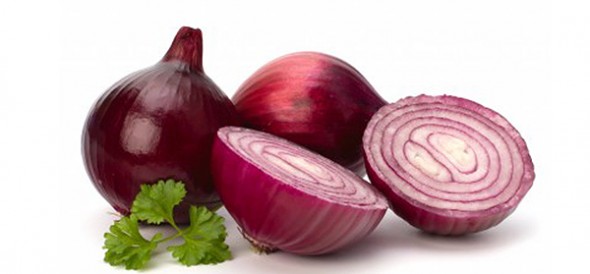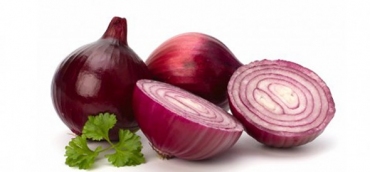Many recipes won’t be complete without onions. Despite their pungent taste and smell, onions rounds out flavours of any ingredients, spices and herbs in our meal. We can often get onions fresh, but for people in specific areas and conditions, frozen, dehydrated and canned onions are available. We can slice or chop fresh onions for all kinds of purposes. Onions are almost never eaten on their own. Depending on their types, taste of onions may range from pungent and sharp to sweet and mild.
Onions range in taste, color and size, depending on the variety. In general, onions that are grown in warmer climates have sweet or mild tastes; while those grown in the winter may have more pungent smell or taste. Like many members of the alliums family, onions are typically loaded with sulphur-based compounds. They cause pungent odor, but can also bring multiple health benefits.
When onions are sliced, sulphuric acid is produced by exposed cells and it will break down into a gas-based compound. When vapour of sulphuric acid reaches our eyes, it may cause irritation and burning sensation. Our eyes will quickly produce tears to flush out and dilute the offending substance. It’s the reason why our eyes water and sting when we slice onions.

There are many health benefits of onions. They contain chromium, which could benefit people with diabetes. The mineral helps to repair the glucose tolerance factor and causes our body to respond better to insulin. Clinical studies show that people who eat more onions can have lower insulin levels, improved glucose tolerance and lower fasting blood glucose levels.
Onions can also increase the level of good HDL cholesterols and lower both triglyceride and total cholesterol levels. One cup of onion could provide us with 20 percent of daily requirements of chromium Other studies also found that making garlic and onions a staple in our diet may significantly reduce our risks of multiple cancer types.
By eating more onions each week, we are less likely to get colon cancer. Regular consumption of onions may treat people with hypertension and high blood sugar. In general, onions contribute to the treatment of diabetic heart disease and atherosclerosis.
The gamma-L-glutamyl-trans-S-1-propenyl-cysteine sulphoxide (GPCS) is a newly discovered compound inside onions and it is an inhibitor of osteoclasts activity. These cells are notorious for their ability to break down bones. This means, onions can help to slow down or prevent the progression of osteoporosis, especially on women who are about to enter the menopausal phase.
Onions are also known for their anti inflammatory properties that can reduce uncomfortable symptoms of swelling and pain. This means, onions can help people who have allergic responses, arthritis or simply common cold. Onions contain multiple flavonoids, such as querticin, that can kill germs along with vitamin C. This means, other than eating onion-rich soup during flu season, it is also recommended to eat vitamin C-rich fruits and veggies. Onion pulp can also be applied on boils and blisters to speed up their healing process.

